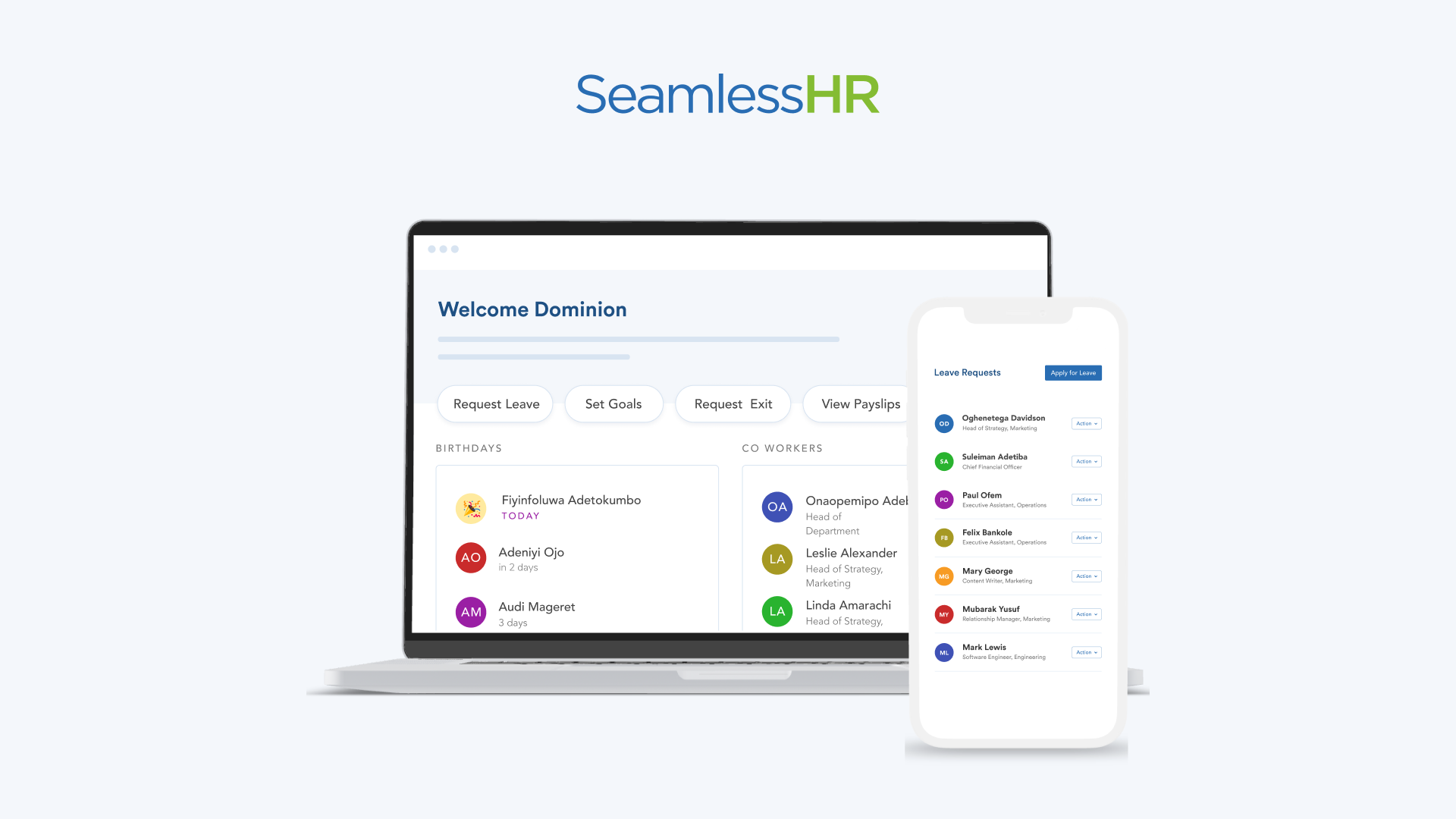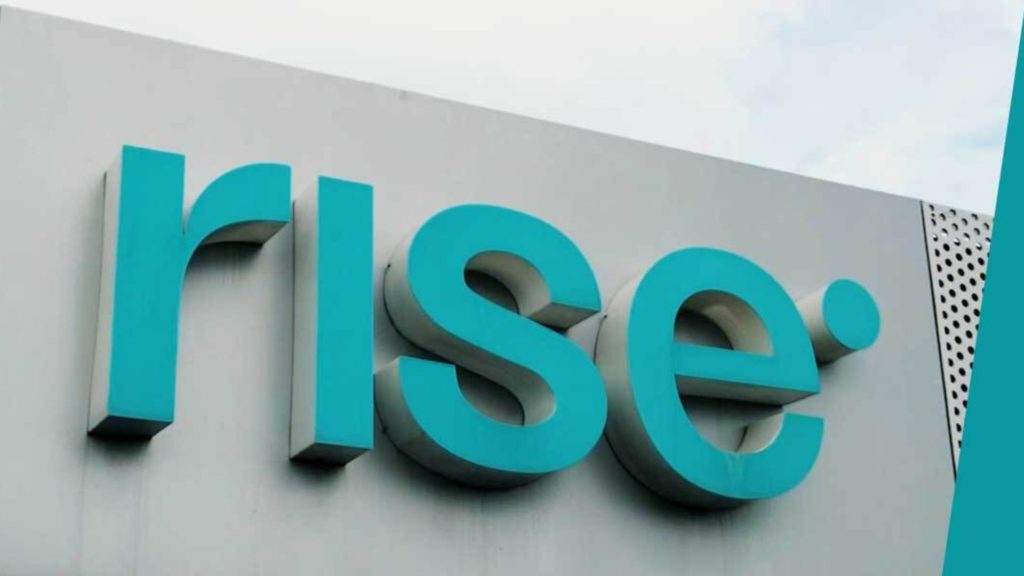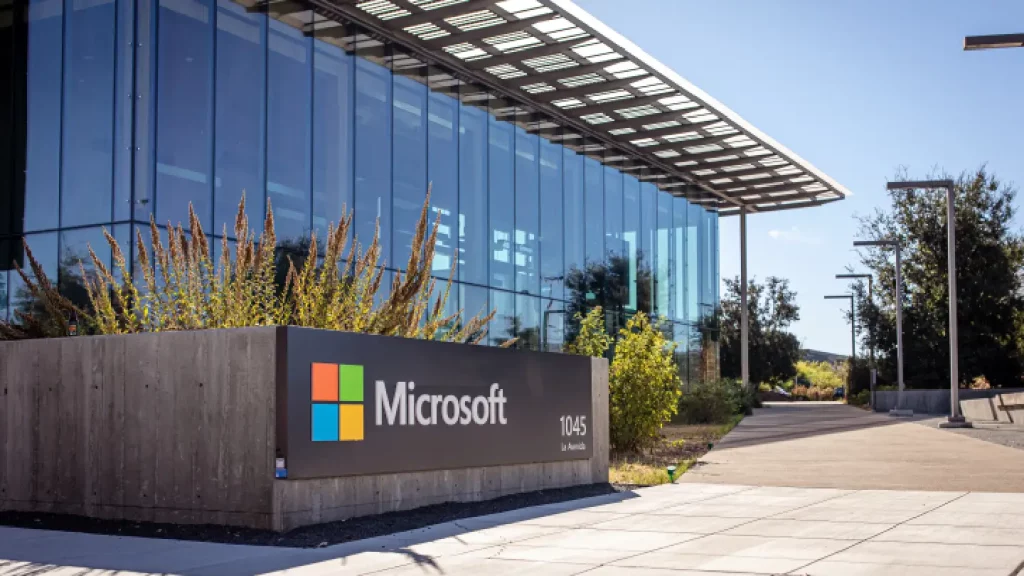Nigerian startup SeamlessHR, which provides payroll and HR software-as-a-service (SaaS) solutions for medium to large-sized companies in several African countries, has closed a new $10 million Series A round.
Africa-focused VC firm, TLcom Capital led the round while some of SeamlessHR’s existing investors participated once again, such as Lateral Capital and Enza Capital. Other investors in this round include Capria, Ingressive Capital, and a number of strategic private investors. The new funding brings total investments secured by the startup to $12.2 million, having previously raised $2.2 million seed in October 2020.
With the funding, SeamlessHR plans to further grow its team of 130 as it eyes a pan-African expansion with new South Africa and Kenya offices being mulled. The company also plans to add new product functionalities around artificial intelligence and HR data analytics, it said, in addition to a new embedded finance product currently being piloted.
SeamlessHR started in 2013 as Insidify.com, a jobs aggregator with a recruitment management system that matched employers to job seekers. That was until its co-founders Emmanuel Okeleji and Deji Lana realised job sites could “do little to address the fundamental causes of unemployment in Africa,” the former told TechCabal in an interview.
After several iterations, the founders made a strategic pivot, relaunching in 2018 as an enterprise-grade, cloud-based HR and payroll management SaaS. SeamlessHR is currently used by hundreds of companies in Nigeria, Ghana, and Tunisia, including renowned brands like PwC, Flutterwave, Sterling Bank, TGI Group, Lagos Business School, AXA, and Chapel Hill Denham, according to the company. More than 100,000 employees from these organisations use SeamlessHR monthly.
“Thanks to our customers, we have become the leading cloud HR and Payroll SaaS in Africa in such a short time,” CEO Okeleji said. “We currently serve most of the medium to large-sized businesses [including ten Nigerian banks and five insurance companies] in countries where we’re concentrated, with Nigeria being our focus market.”
SeamlessHR is part of a cohort of startups that are reinventing the administrative stack in organisations. Others include YC-backed Workpay and Bento. But the company has some product advantages compared to other solutions and appears to be a market leader.
Firstly, companies in some cases typically install “core HR” software while they run payroll using another package or in-house. Switching from one siloed solution to the other can be incredibly hard. SeamlessHR’s holistic solutions prevent this as its cloud platform enables client organisations and their people to automate and optimise the entire HR process, from recruitment to retirement. In addition to the core HR management system, it offers different tools to track analytics as well as manage performance and competency, employee recruitment, leave, and payroll.
Okeleji also pointed out the user-friendliness of SeamlessHR, which has enabled it to capture some market share from other HR management SaaS providers, particularly foreign players Oracle and SAP. “Some systems are so complex to use that you need to be certified. For SeamlessHR, it’s user-friendly enough to understand with just one training during the onboarding,” he said.
Will Poole, Managing Partner at Capria notes that SeamlessHR is addressing the needs of African enterprises in “ways that the global giants can’t compete with by building customer-centric SaaS designed from the ground-up to address complexity unique to the continent.”
In Africa, SeamlessHR has a big market opportunity as every large company needs an HR and payroll solution. There’s also a growing appetite for cloud computing solutions by organisations that wish to digitise their workplaces. From an estimated market size of $14.2 billion in 2021, the Middle East and Africa’s cloud computing industry is expected to grow to $31.4 billion by 2026. “For a company that has 20 employees, HR software is a nice to have. But if you have 600 employees, then you have a pain that we solve,” the CEO said.
After capturing the Nigerian market to a significant extent and growing headline revenue 3x year-on-year (except in 2020 due to the pandemic-induced economic slowdown), the startup has now set its sights on companies in other African countries.
But finding the right talent remains a key problem. In addition, the size and readiness of the African economy for software services is relatively small and nascent, according to Okeleji. “If we were an American company, we’d probably be doing 6x growth for the efforts we put in because the economy is bigger and we’d have a lot more customers and can charge higher prices.”
To expand its client base, the CEO does not rule out expanding SeamlessHR to markets outside of Africa but notes that for now, the focus is on Africa and the team isn’t “distracted”.
“This is only the beginning. We are committed to customer success and this funding will enable us to invest in the continuous optimisation of customer experience across all touchpoints, adding new features and functionalities starting from Q2 this year,” Okeleji said.
If you enjoyed reading this article, please share it in your WhatsApp groups and Telegram channels.



















